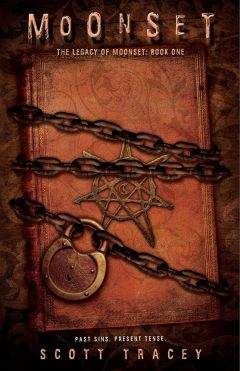Ирвин Ялом - The Schopenhauer Cure

Помощь проекту
The Schopenhauer Cure читать книгу онлайн
opportunity to live our life again and again in precisely the
same manner.»
«How did that relieve you?» asked Philip.
«I looked at my life and felt that I had lived it right—
no regrets frominside though, of course, I hated theoutside
events that took my wife from me. It helped me decide how
I should live my remaining days: I should continue doing
exactly what had always offered me satisfaction and
meaning.»
«I didn`t know that about you and Nietzsche, Julius,”
said Pam. «It makes me feel even closer to you
becauseZarathustra, melodramatic as it is, remains one of
my absolutely favorite books. And I`ll tell you my favorite
quote from it. It`s when Zarathustra says, вЂWas that life?
Well, then, once again!` I love people who embrace life and
get turned off by those who shrink away from it—I`m
thinking of Vijay in India. Next ad I run in a personal
column maybe I`ll post that Nietzsche quote and the
Schopenhauer tombstone quote side–by–side and ask
respondents to choose between them. That would winnow
out the nay–sayers.
«I have another thought I want to share.» Pam turned
to face Philip. «I guess it`s obvious that after the last
meeting I thought about you a lot. I`m teaching a course on
biography, and in my reading last week I ran across an
amazing passage in Erik Erikson`s biography of Martin
Luther. It goes something like this:вЂLuther elevated his own
neurosis to that of a universal patient–hood and then tried
to solve for the world what he could not solve for himself.` I
believe that Schopenhauer, like Luther, seriously fell into
this error and that you`ve followed his lead.»
«Perhaps,” responded Philip in a conciliatory
fashion, «neurosis is a social construct, and we may need a
different kind of therapy and a different kind of philosophy
for different temperaments—one approach for those who
are replenished by closeness to others and another approach
for those who choose the life of the mind. Consider, for
example, the large numbers who are drawn to Buddhist
meditation retreats.»
«That remind me of something I`ve been meaning to
say to you, Philip,” said Bonnie. «I think your view of
Buddhism misses something. I`ve attended Buddhist
retreats where the focus has been directed outwards—on
loving kindness and connectivity—not on solitude. A good
Buddhist can be active, in the world, even politically
active—all in the service of loving others.»
«So it`s becoming clearer,” said Julius, «that your
selectivity error involves human relationships. To give
another example: you`ve cited the views about death or
solitude of several philosophers but never speak of what
these same philosophers—and I`m thinking of the Greek
philosophers—have said about the joys ofphilia, of
friendship. I remember one of my own supervisors quoting
me a passage from Epicurus saying that friendship was the
most important ingredient for a happy life and that eating
without a close friend was living the life of a lion or a wolf.
And Aristotle`s definition of a friend—one who promotes
the better and the sounder in the other—comes close to my
idea of the ideal therapist.»
«Philip,” Julius asked, «how is this all feeling today?
Are we laying too much on you at once?»
«I`m tempted to defend myself by pointing out that
not one of the great philosophers ever married, except
Montaigne, who remained so disinterested in his family
that he was unsure how many children he had. But, with
only one remaining meeting, what`s the point? It`s hard to
listen constructively when my entire course, everything I
plan to do as a counselor, is under attack.»
«Speaking for myself, that`s not true. There`s a great
deal you can contribute, much that youhave contributed to
the members here. Right?» Julius scanned the group.
After lots of strenuous head–nodding affirmation for
Philip, Julius continued: «But, if you`re to be a counselor,
youmust enter the social world. I want to remind you that
many, I would betmost, of those who will consult you in
your practice will need help in their interpersonal
relationships, and if you want to support yourself as a
therapist, youmust become an expert in these matters—
there`s no other way. Just take a look around the group:
everyone here entered because of conflicted relationships.
Pam came in because of problems with the men in her life,
Rebecca because of the way her looks influenced her
relations with others, Tony because of a mutually
destructive relationship with Lizzy and his frequent fights
with other men, and so on for everyone.»
Julius hesitated, then decided to include all the
members. «Gill entered because of marital conflict. Stuart
because his wife was threatening to leave him, Bonnie
because of loneliness and problems with her daughter and
ex–husband. You see what I mean, relationships cannot be
ignored. And, don`t forget, that`s the very reason I insisted
you enter the group before offering you supervision.»
«Perhaps there`s no hope for me. My slate of
relationships, past and present, is blank. Not with family,
not with friends, not with lovers. I treasure my solitude, but
the extent of it would, I think, be shocking to you.»
«A couple times after group,” said Tony, «I`ve asked
if you wanted to have a bite together. You always refused,
and I figured it was because you had other plans.»
«I haven`t had a meal with anyone for twelve years.
Maybe an occasional rushed sandwich lunch, but not a real
meal. You`re right, Julius, I guess Epicurus would say I
live the life of a wolf. A few weeks ago after that meeting
when I got so upset, one of the thoughts that circled in my
mind was that the mansion of thought I had built for my life
was unheated. The group is warm. This room is warm but
my living places are arctic cold. And as for love, it`s
absolutely alien to me.»
«All those women, hundreds of them, you told us,”
said Tony, «there must have been some love going around.
You must have felt it. Some of them must have loved you.»
«That was long ago. If any had love for me, I made
sure to avoid them. And even if they felt love, it was not
love, for me, the real me—it was love for my act, my
technique.»
«What`s the real you?» asked Julius.
Philip`s voice grew deadly serious. «Remember what
I did for a job when we first met? I was an exterminator—a
clever chemist who invented ways to kill insects, or to
render them infertile, by using their own hormones. How`s
that for irony? The killer with the hormone gun.»
«So the real you is?» Julius persisted.
Philip looked directly into Julius`s eyes: «A monster.
A predator. Alone. An insect killer.» His eyes filled with
tears. «Full of blind rage. An untouchable. No one who has
known me has loved me. Ever. No onecould love me.»
Suddenly, Pam rose and walked toward Philip. She
signaled Tony to change seats with her and, sitting down
next to Philip, took his hand in hers, and said in a soft
voice, «Icould have loved you, Philip. You were the most
beautiful, the most magnificent man I had ever seen. I
called and wrote you for weeks after you refused to see me
again. I could have loved you, but you polluted—”
«Shhh.» Julius reached over and touched Pam on the
shoulder to silence her. «No, Pam, don`t go there. Stay with
the first part, say it again.»
«I could have loved you.»
«And you were the...” prompted Julius.
«And you were the most beautiful man I had ever
seen.»
«Again,” whispered Julius.
Still holding Philip`s hand and seeing his tears flow
freely, Pam repeated, «I could have loved you, Philip. You
were the most beautiful man...”
At this Philip, with his hands to his face, rose and
bolted from the room.
Tony immediately headed to the door. «That`s my
cue.»
Julius, grunting as he too rose, stopped Tony. «No,
Tony, this one`s on me.» He strode out and saw Philip at
the end of the hall facing the wall, head resting on his
forearm, sobbing. He put his arm around Philip`s shoulder
and said, «It`s good to let it all out, but we must go back.»
Philip, sobbing more loudly and heaving as he tried
to catch his breath, shook his head vigorously.
«You must go back, my boy. This is what you came
for, this very moment, and you mustn`t squander it. You`ve
worked well today—exactly the way you have to work to
become a therapist. Only a couple of minutes left in the
meeting. Just come back with me and sit in the room with
the others. I`ll watch out for you.»
Philip reached around and briefly, just for a moment,
put his hand atop Julius`s hand, then raised himself erect
and walked alongside Julius back to the group. As Philip
sat down, Pam touched his arm to comfort him, and Gill,
sitting on the other side, clasped his shoulder.
«How areyou doing, Julius?» asked Bonnie. «You
look tired.»
«I`m feeling wonderful in my head, I`m so swept
away, so admiring of the work this group has done—I`m so
glad to have been a part of this. Physically, yes, I have to
admit I am ailing, and weary. But I have more than enough
juice left for our last meeting next week.»
«Julius,” said Bonnie, «okay to bring a ceremonial
cake for our last meeting?»
«Absolutely, bring any kind of carrot cake you
wish.»
But there was to be no formal farewell meeting. The
following day Julius was stricken by searing headaches.
Within a few hours he passed into a coma and died three
days later. At their usual Monday–afternoon time the group
gathered at the coffee shop and shared the ceremonial
carrot cake in silent grief.
41
Death Comes to Arthur Schopenhauer
_________________________
I can bear
the
thought
that in a
short time
worms will
eat away
my body
but the
idea of
philosophy
professors
nibbling
at my
philosophy
makes me
shudder.
_________________________
Schopenhauer faced death as he faced everything
throughout his life—with extreme lucidity. Never flinching
when staring directly at death, never succumbing to the
emollient of supernatural belief, he remained committed to
reason to the very end of his life. It is through reason, he
said, that we first discover our death: we observe the death
of others and, by analogy, realize that death must come to
us. And it is through reason that we reach the self–evident
conclusion that death is the cessation of consciousness and
the irreversible annihilation of the self.
There are two ways to confront death, he said: the
way of reason or the way of illusion and religion with its
hope of persistence of consciousness and cozy afterlife.
Hence, the fact and the fear of death is the progenitor of
deep thought and the mother of both philosophy and
religion.
Throughout his life Schopenhauer struggled with the
omnipresence of death. In his first book, written in his
twenties, he says: «The life of our bodies is only a
constantly prevented dying, an ever deferred death....
Every breath we draw wards off the death that constantly
impinges on us, in this way we struggle with it every
second.»
How did he depict death? Metaphors of death–confrontation abound in his work; we are sheep cavorting
in the pasture, and death is a butcher who capriciously
selects one of us and then another for slaughter. Or we are
like young children in a theater eager for the show to begin
and, fortunately, do not know what is going to happen to
us. Or we are sailors, energetically navigating our ships to
avoid rocks and whirlpools, all the while heading
unerringly to the great final catastrophic shipwreck.
His descriptions of the life cycle always portray an
inexorably despairing voyage.
What a difference there is between our beginning and
our end! The former in the frenzy of desire and the
ecstasy of sensual pleasure; the latter in the destruction
of all the organs and the musty odor of corpses. The
path from birth to death is always downhill as regards
well–being and the enjoyment of life; blissfully
dreaming childhood, lighthearted youth, toilsome
manhood, frail and often pitiable old age, the torture of
the last illness, and finally the agony of death. Does it
not look exactly like existence were a false step whose
consequences gradually become more and more
obvious?
Did he fear his own death? In his later years he
expressed a great calmness about dying. Whence his
tranquillity? If the fear of death is ubiquitous, if it haunts us
all our life, if death is so fearsome that vast numbers of
religions have emerged to contain it, how did the isolated
and secular Schopenhauer quell its terror for himself?
His methods were based on intellectual analysis of
the sources of death–anxiety. Do we dread death because it
is alien and unfamiliar? If so, he insists we are mistaken
because death is far more familiar than we generally think.
Not only have we a taste of death daily in our sleep or in
states of unconsciousness, but we have all passed through
an eternity of nonbeing before we existed.
Do we dread death because it is evil? (Consider the
gruesome iconography commonly depicting death.) Here
too he insists we are mistaken: «It is absurd to consider
nonexistence as an evil: for every evil, like every good,
presupposes existence and consciousness.... to have lost
what cannot be missed is obviously no evil.» And he asks
us to keep in mind that life is suffering, that it is an evil in
itself. That being so, how can losing an evil be an evil?
Death, he says, should be considered a blessing, a release
from the inexorable anguish of biped existence. «We
should welcome it as a desirable and happy event instead
of, as is usually the case, with fear and trembling.» Life
should be reviled for interrupting our blissful nonexistence,
and, in this context, he makes his controversial claim: «If
we knocked on the graves and asked the dead if they would
like to rise again, they would shake their heads.» He cites
similar utterances by Plato, Socrates, and Voltaire.
In addition to his rational arguments, Schopenhauer
proffers one that borders on mysticism. He flirts with (but
does not marry) a form of immortality. In his view, our























